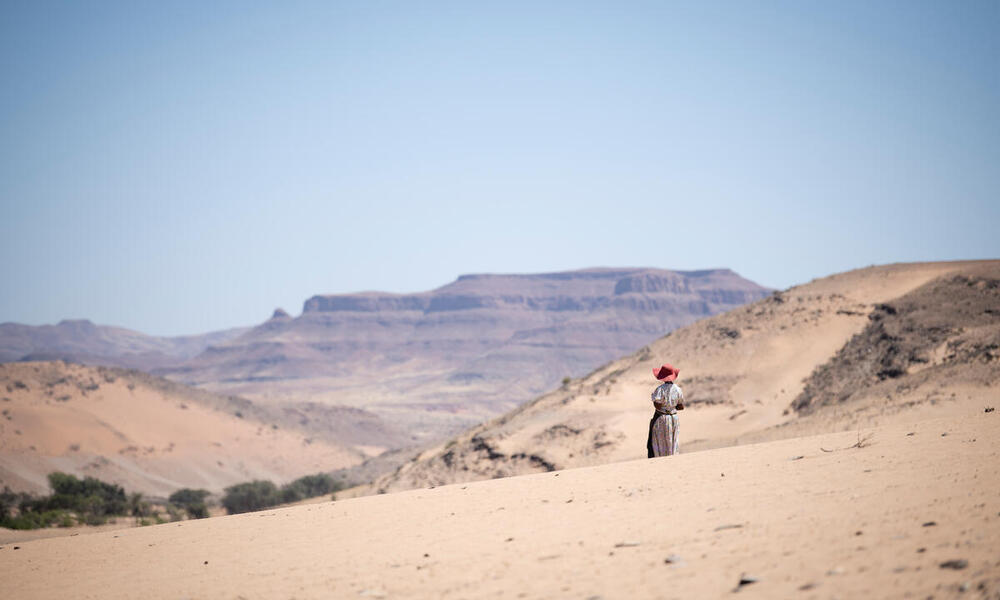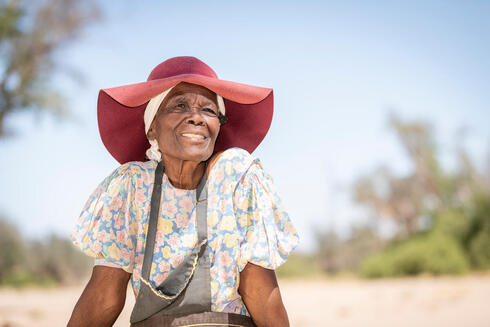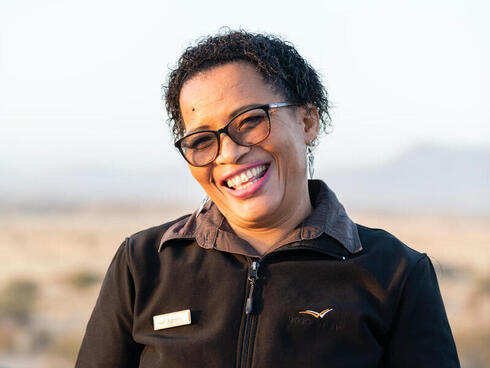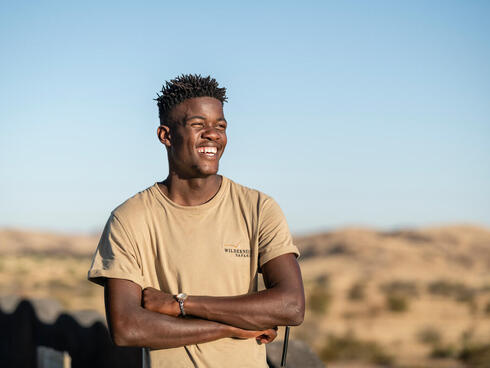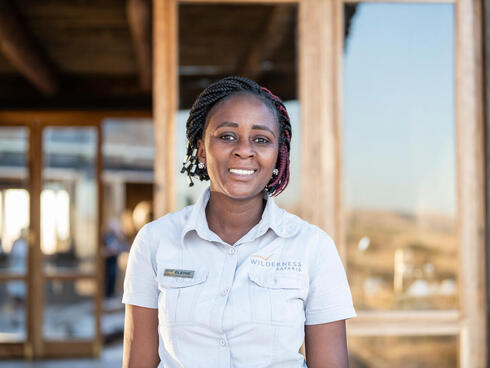The night before we met, an elephant herd passed through Rebecca Adams’ small village in the heart of northwest Namibia's arid Huab River Valley. "They pushed over a fence to raid a small garden. I thought, elephants again. And I decided I would stay in bed and let others chase them away,” she said
I’m with Rebecca tracking these same elephants, having followed their footprints through the village of De Riet to further along the Huab River bed. It's a vast semi-desert landscape ranging from stoney plains to extraordinary rock formations and dunes. The elephants had paused to drink at the reservoir just outside the village. The sun's low angle had highlighted the distinctive ridges of the herd’s tracks in the powdery dust, intermingled with human footprints and goat tracks.
Rebecca is one of a community known as the Riemvasmaakers. Once South African residents living in Riemvasmaak in the Northern Cape, South Africa, they were forced by the South African government into Namibia in the early 1970s under the apartheid government's racist regime.
Traditionally livestock farmers, the Riemvasmaakers have managed to keep goats, sheep, donkeys, and chickens alive in arid and dangerous conditions. Beyond frequent droughts, their animals could be preyed upon by lions and hyenas. “We were not used to these wild animals at all, and we had to move from the first place we settled because there were too many lions,” Rebecca says.
But in a show of resolve and ingenuity, the community learned how to survive. Today, Rebecca has a small flock of 20 goats, including two new kids. "I had 200 before the recent drought," she says, optimistic that the herd will recover so long as there is rain. With their tiny bells jingling, the goats snack on pods falling from giant Ana trees that grow along the dry waterways, tapping into secret springs and moisture deep within the earth. The sun is blazing hot, but Rebecca made friends with it long ago.
After South Africa's first democratic elections in 1994, the Riemvasmaakers' land was returned to the community and they were given the option of returning to South Africa. Despite the harsh climate and living closely with the elephants and the lions, Rebecca chose to stay in Namibia. Like some other Riemvasmaakers, the dust had gotten under her skin. She'd learned to love the elephants, although they remain hard to live with, and she says she is content here with her goats.
